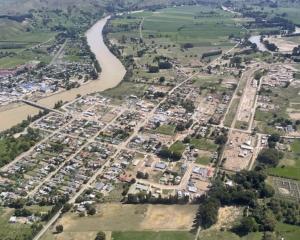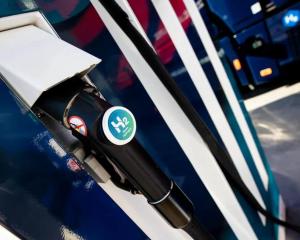Last week's decision by the NZ Reserve Bank to reduce the official cash rate (OCR) to a record low of 1.5% has certainly triggered much debate.
The call has been made that further monetary stimulation is needed to support certain sectors of the local economy and to take account of a degree of uncertainty in the global economy.
The wisdom or otherwise of the rate cut will only be judged in hindsight but, it is certainly fascinating to see a situation where our rate is now a full 1% below the United States Federal Reserve interest rate.
I remember a time not too long ago when New Zealand's cash rate was always higher than the United States'.
This was based on the belief that we were a small economy with a high level of external debt, and that higher local interest rates had to reflect the increased risk.
Apparently, the world is now different.
With the official cash rate at this level, the return from cash and some bank term deposits are now negative; i.e. the after-tax return from the investment is less than the inflation rate.
This means that the value of your capital held in cash and shorter dated term deposits is shrinking in relative terms.
In such an environment it is very important to be aware of the level of cash you are holding.
During recent client meetings I have been surprised to discover the amount of, what I term, ''lazy money'' that some clients are inadvertently holding.
I use the term lazy money to describe money that is earning no, or a very low return, through inattention, rather than necessity.
When thinking about this issue the first question that needs to be asked is; why hold capital in cash?
There are, of course, often very good reasons to hold cash. In my view, any capital which is likely to be needed within the next 12 months should be held in cash.
This could be money that is required to supplement income or perhaps might be needed for emergency purposes.
In these circumstances, it makes sense to prioritise immediate access and capital stability over investment return, so holding cash makes absolute sense.
However, it is important to understand that at the current interest rates, this part of your wealth is unlikely to keep pace with inflation.When considering any provision for future expenses beyond 12 months, the immediate need to have access can be forgone in the quest for a better return.
Short-duration term deposits can be used for capital that falls into this category.
Once you have accounted for these short-term provisions, then any additional cash held above this threshold might be identified as lazy money.
Rather than just sitting as cash it could be working harder for you.
By ''working harder'', I mean that it should be invested in a way that is consistent with your risk profile and time frame. This will generally result in this surplus cash being allocated between bonds, property and shares.
The scale of the capital that is held in transaction and savings accounts in New Zealand is staggering.
Reserve Bank figures show that households hold more than $51billion in bank savings accounts and another $25billion in transaction deposits.
By way of comparison, the total assets held in KiwiSaver in March 2018 was $48.6billion.
I suspect that there are a number of reasons behind the high balances held in these accounts.
Higher fixed interest rates in the past have caused complacency and a degree of misplaced confidence that cash and fixed interest can provide a reasonable investment return.
With interest rates forecast to stay at these levels for some time, and possibly move even lower, it is important to ask yourself: how much lazy money is there in my personal balance sheet?
-Peter Ashworth is a principal of New Zealand Funds Management Ltd, and is an authorised financial adviser based in Dunedin. The opinions expressed in this column are his own and not necessarily that of his employer. His disclosure statements are available on request and free of charge.












